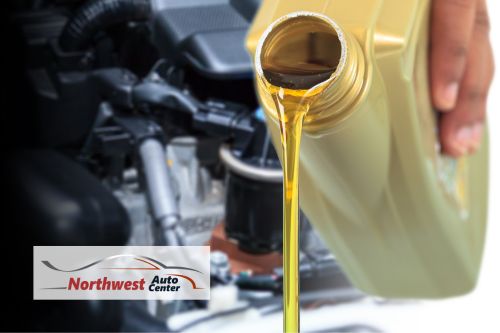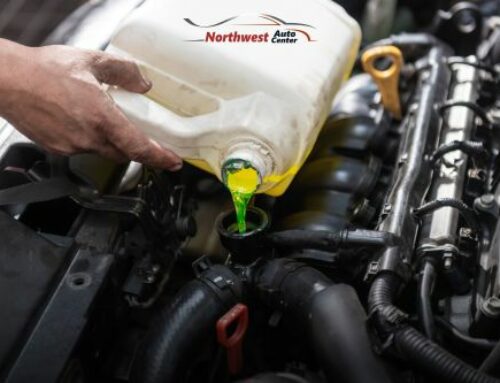Maintaining your vehicle is crucial for its longevity and optimal performance, and one key aspect of proper maintenance is choosing the right motor oil. With Texas’s weather and driving conditions, selecting the appropriate motor oil becomes even more critical. This guide will help you navigate the options and break down the different motor oil types.

Understand the Basics
Before delving into the specifics, it’s essential to understand the basic characteristics of motor oil. Motor oils are graded based on viscosity, which refers to the oil’s thickness or resistance to flow. The Society of Automotive Engineers (SAE) establishes viscosity standards, and you’ll commonly see oil grades like 5W-30 or 10W-40. The first number (5W or 10W) represents the oil’s viscosity in cold temperatures. The second number (30 or 40) indicates viscosity at operating temperatures.
Consider Your Vehicle’s Specifications for Motor Oil
Every vehicle comes with manufacturer recommendations for motor oil. These specifications can usually be found in your owner’s manual. Pay attention to the recommended viscosity grade and any additional requirements, such as synthetic or conventional oil. Following these guidelines ensures that your engine receives the appropriate protection and lubrication.
Climate Matters
Texas experiences a range of climates, from scorching summers to mild winters. The viscosity of your motor oil should be tailored to the prevailing weather conditions. In colder regions, a lower viscosity oil, such as 5W, helps the engine start more easily. Conversely, in hotter climates, a higher viscosity oil, like 10W or 20W, provides better protection under high temperatures. Consider the average temperatures in your region when selecting motor oil.
Synthetic vs. Conventional
Motor oils come in two primary types: synthetic and conventional. Synthetic oils are formulated in a laboratory, offering enhanced performance and longevity. They perform well in extreme temperatures and provide superior protection against wear and deposits. Conventional oils, on the other hand, are derived from crude oil and are generally more budget-friendly. While they meet basic requirements, synthetic oils often outperform them regarding overall engine protection. Additionally, many newer vehicles set a standard for using synthetic oil in their manuals.
Check for Industry Certifications
Look for motor oils that meet industry standards and carry certifications from organizations like the American Petroleum Institute (API) and the International Lubricant Standardization and Approval Committee (ILSAC). These certifications indicate that the oil has undergone rigorous testing and meets the performance requirements for modern engines. Pay attention to the specific API service category recommended for your vehicle.
Consider Additives
Many motor oils come with additives designed to enhance their performance. Common additives include detergents, dispersants, and anti-wear agents. Detergents help keep the engine clean by preventing the buildup of sludge and deposits. Dispersants prevent contaminants from forming harmful clumps, while anti-wear agents protect engine components. When choosing motor oil, consider the additives that align with your vehicle’s needs.
Driving Conditions
The way you use your vehicle can also impact your motor oil choice. Suppose you frequently engage in stop-and-go city driving or towing heavy loads. In that case, you may opt for a high-performance oil that can handle the additional stress. On the other hand, if your driving consists mainly of highway miles, a standard motor oil may suffice. Understanding your typical driving conditions allows you to choose an oil that best suits your vehicle’s requirements.
Regular Oil Changes
Regardless of your motor oil, regular oil changes are paramount to your vehicle’s health. Over time, motor oil breaks down, loses viscosity, and becomes less effective at lubricating and protecting the engine. Follow the manufacturer’s recommended oil change intervals to ensure optimal performance and longevity for your Texas vehicle.
Choosing the right motor oil for your Texas vehicle involves considering viscosity, climate, vehicle specifications, and driving conditions. By understanding these elements and following manufacturer recommendations, you can keep your engine running smoothly in the diverse conditions of the Lone Star State. Remember, an informed decision on motor oil today can lead to a more reliable and efficient vehicle tomorrow.






Leave A Comment
You must be logged in to post a comment.